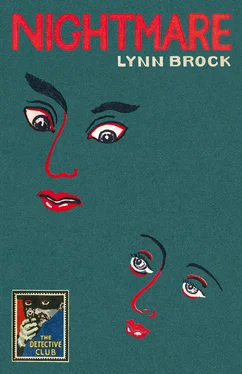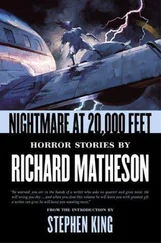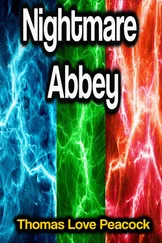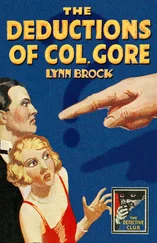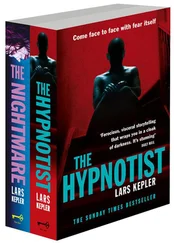The portable … God, how he hated the wireless now—the fatuous voices of the announcers—the maudlin, insatiable music … Music … God—
All those infernal dusty, stale, useless old books. Three or four hundred pounds worth of rubbish—one probably wouldn’t get five pounds for the lot if one tried to sell them and get rid of them. Neither he nor Elsa had opened one of them for years. And what a business it had been moving them about. What a business it would be when they would have to be moved again. And they would have to be moved again.
The settee. Ruined by the dog’s paws. That must be re-covered—for the dog’s paws to filthy again.
The rugs. All faded, all soiled and stained and ragged at the fringes. More work for the cleaners.
That armchair. The springs gone and a castor off. He had been intending to fix that castor for over a year.
Expense—disturbance—trouble. And all for nothing. Everything was wearing out—going. Nothing would stop its going. In a few months, after all that fuss and upset, everything would be dirty and dingy again—older—shabbier. Hopeless to try to keep things decent with clouds of dust coming in from the road all day long and a dog messing about from morning to night and no servant. Hopeless—mere waste of time. Time—God, how the time flew away. The sitting-room alone took a couple of hours to do—even scamping the job. And next morning it looked as if it hadn’t been done for weeks.
And yet one couldn’t live in a piggery—one couldn’t allow Elsa to. All those confounded things must be cleaned. All those confounded small jobs must be done and paid for.
For that matter, the room would have to be done up very soon—ceiling, wallpaper, and paintwork. All of them were in a bad way, and would be definitely shabby if they were let go until the spring. If the sitting-room was done, the passage and the bathroom would have to be done at the same time. One job must be made of the lot—one upset. More argument and discussion and difficulty with that surly, tricky brute of a landlord—more worry. Probably he would refuse again to do the work. Even if he did consent to do it, it would mean all sorts of nuisance—the greater part of the flat out of action—workmen about it all day long—noise, smells, mess. Elsa and he would have to sleep and meal at an hotel or somewhere. More expense. And one or other of them would have to be about the flat while the workmen were in it. Lord, what a nuisance.
How pretty the room had looked when they had settled down in the flat two years ago. How sure he had felt, that first afternoon in April, 1929, when he had seated himself at the just-delivered roll-top desk, that, in that friendly, comfortable, peaceful work-room, his brain would come back again, tranquilly and obediently, to the playing of its old tricks.
That damnable, cheerful-faced clock on the mantel-piece. How many hours of bitter defeat and impotent self-reproach it had hurried away, eagerly, irrevocably. For two years of hours, each a little swifter than the last, each a little nearer to panic-speed, it had hustled him and bustled him and mocked his flurry and his failure. Cursed, smug thing … Extraordinary how loud its faint tick had grown—how long he had failed to detect its power to irritate and distract him—how instant had been the relief when, one afternoon six weeks or so back, a sudden impulse had caused him to jump up from his table and stop it. On that afternoon he had written nearly a whole chapter—the chapter which for over three months had refused to begin itself. In the following three weeks he had succeeded in writing four more chapters, turning out four thousand words a day, still with some difficulty, but regularly. The spell had seemed broken at last. For that brief space the sitting-room had worn again the guise of its old encouraging friendliness. He had taken to hurrying in there after lunch, leaving Elsa to wash up unaided.
And then this damnable, idiotic, maddening trouble with the Prossips had begun—just when there had seemed at last, a hope …
He turned his head towards the door of the room. A thick portière was drawn across it and, actually, the sound of the gramophone was a faint and remote whining. No portière, however, could shut out its real torture, the malice of its persistency; for Whalley’s ears that faint, distant whine was a savage, raucous clamour, hammering at their drums. For a little space he remained, half-turned in his chair, listening to it with rigid intentness. Then, as a heavy thump shook the ceiling above his head he flung down his pen furiously, sprang to his feet, and stood with both hands clenched before his face, glaring upwards.
The paroxysm of anger passed almost instantly—before a second thump followed the first. But he remained for a space surprised by its violence and by its sudden complete obliteration of his self-control. It had produced in him for a moment an absolutely novel sensation—a sensation of being on the point of surrendering his will and his consciousness to some overpowering, hostile, dangerous force. A little like the sensation when one was just about to surrender to an anæsthetic—but much more violent—much more eager to leave behind all the things one knew. A dangerous sensation. For a moment he realised he had been upon the point of shouting—bellowing like a mad animal. He discovered that his legs were trembling a little at the knees and that his hands were still raised absurdly in the air, clenched in front of his face. When he dropped them he looked at them—he had a trick of looking at his hands—he saw that their palms were moist with perspiration.
Ridiculous. Grotesque. Shaking legs and sweating hands. That sort of thing would never do. That sort of thing, he must remember, was just the sort of thing those sluts upstairs hoped he would do—allow the business to get on his nerves and shout and slam doors and bang things about. Thank Heaven he hadn’t shouted. Shout? Good God, he had never shouted at anyone in his life. All along, since this annoyance had begun, he had kept a close watch on himself, a tight grip on his temper. He had gone out of his way to shut doors quietly, to speak more gently to the dog. No slightest symptoms of resentment, he flattered himself, had rewarded those idiots in the top flat for all their trouble. No doubt they kept watch up there, too—listened—always hoping for some sound of anger or retaliation. Well, they had waited in vain—they would wait in vain.
Now, why on earth had that one particular thump had that strange effect upon him. They had been thumping and banging away up there for nearly three weeks now. He had heard hundreds of thumps. At least a hundred times a day, he supposed, he had heard a thump somewhere above his head. There—they were at it again now. But he was able to smile now—felt no anger whatever, merely an inclination to yawn. Yet that one particular thump, no louder than the rest, had swept away from him all knowledge of himself save a desire to shout madly. Funny. Too many cigarettes, probably. The afternoon was stuffy. And, of course, the thing had been going on for three weeks now.
The fountain-pen had rebounded from the surface of the table when he had thrown it down and, falling on the carpet had marked it with a small inkstain. An agitated dismay seized him. He clucked, hurried to the roll-top desk, reduced its disorder to chaos with searching hands, found at last a small piece of blotting-paper in a drawer and hurried back to go down on his knees over the stain. The ink had soaked into the pile of the carpet swiftly, however, and the blotting-paper proved of little avail. He picked up the pen with another cluck, and examined its nib solicitously. It had been Elsa’s first gift to him on the first day of their brief engagement—a pledge of the victorious future it was to have won for them. He smiled wryly as he rose to his feet again; there had been no victories.
Читать дальше
